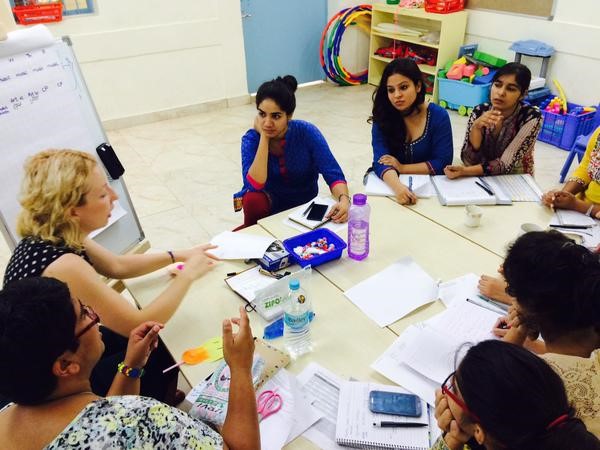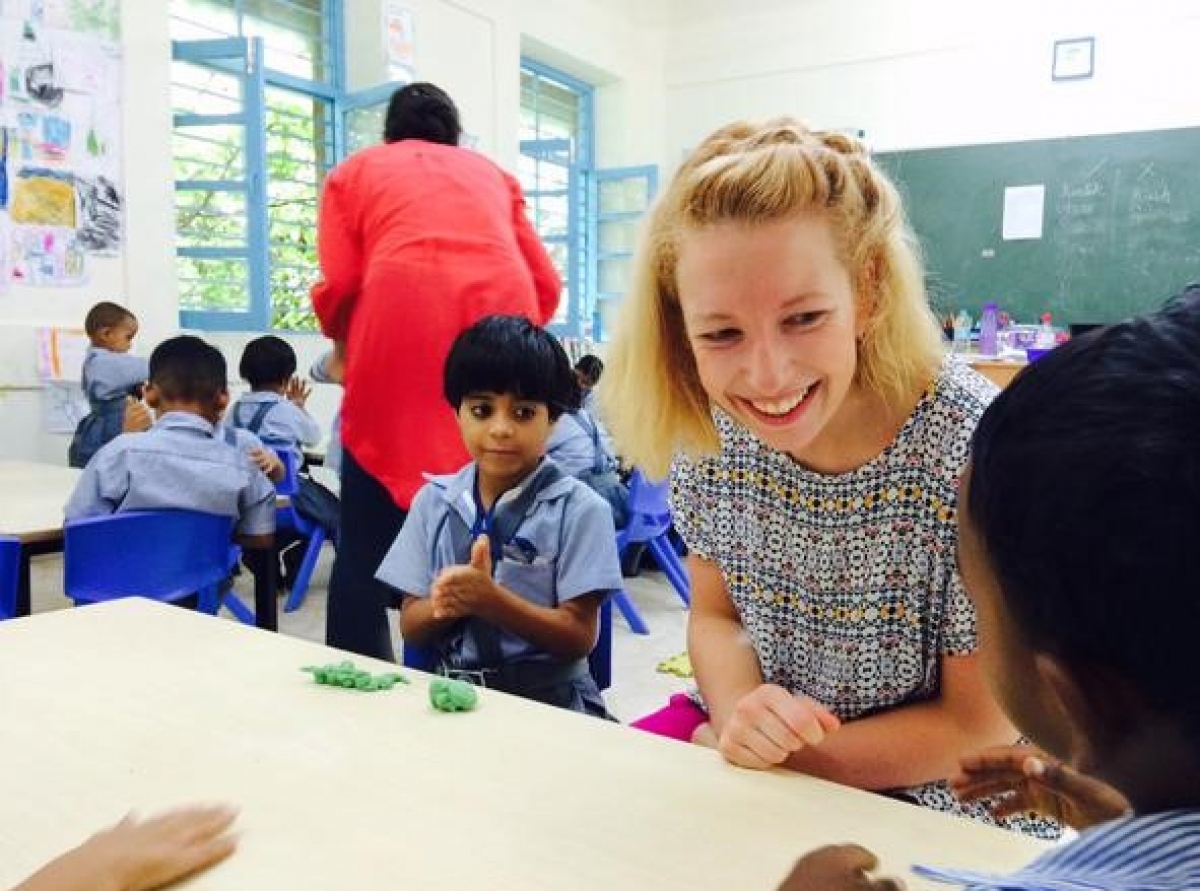Aoife O'Donnell is a reception teacher from Ark John Keats in Enfield. Last summer she spent two weeks in India as part of the Ark Global Teaching Fellowship Programme, sharing her expertise with our first primary school in India, Ark Lajpat Nagar.
I arrived in India with limited knowledge of the education system. I expected overcrowded classrooms with few resources and I was sceptical of the quality of education that could be provided in these circumstances. I was hopeful however that Ark Lajpat Nagar would present an alternative education for India’s poorest children.
The striking thing about Dehli is the contrasts you find at every corner: urban slums next to luxury shopping malls, rickshaws bumper to bumper with 4x4s, all accompanied by a cacophony of blaring horns, calls from street vendors hawking fruits, socks, balloons and everything else in between. Once my senses acclimatised to the drama, I began to notice a bit of magic amidst the mayhem.
Nowhere was this magic more noticeable than inside Ark Lajpat Nagar. Step inside and the first thing you notice is colourful student artwork, bright walls, and bright smiles around every corner. Greeted by warm hugs and sweet chai we were instantly made to feel a part of the team and were welcomed gladly into classrooms by both teachers and students alike.

During my time at Ark Lajpat Nagar, I learnt a lot about the challenges of teaching in India. If you ask the teachers about the biggest challenge for improving learning outcomes they will generally point to the numerous gaps in the system. Some schools continue to lack adequate infrastructure; several states still face a severe shortage of teachers. Many will criticise the poor quality of institutional support for teachers’ professional development. Yet there is another less visible, but debilitating and potentially worsening problem that plagues Indian classrooms: children falling behind. A typical Indian school focuses on completing the curriculum and is not structured to provide extra help to children who are falling behind. Without critical learning support, a large fraction of Indian children slip through the cracks.
Yet, Ark Lajpat Nagar is not a typical Indian school.
At Ark Lajpat Nagar, Head Teacher Urmilla Chowdry is leading things in a different direction. Ark Lajpat Nagar has developed their own curriculum, sought only dedicated teachers through a rigorous screening process, hired just eight talented and motivated educators out of 400 applicants, and then put them through an additional five-week training course supported by Ark Teacher Training. The most inspiring thing for me was seeing this training in action. What was most impressive about the teaching staff was their openness to observation and feedback. Following an intensive few days of inset, including training on phonics, a rejigging of the timetable, the introduction of a new behaviour chart amongst other things, the teachers began to implement key points from the training straight away.
Despite the very positive steps Ark Lajpat Nagar is taking in providing children with a quality education, the personal challenges faced by many of the families of children attending the school still poses a threat to the children’s education, including malnutrition and poverty. For some children, the distance to school is great. One mother accompanies her daughter on the 45 minute walk to school every day, balancing a toddler on her hip. She makes the same journey four times a day, and continued to do so even in the record breaking July heat.
I went to India with the assumption that our work at Ark Lajpat Nagar would make a difference to the teachers we worked with, yet I hadn’t realised just how much I myself would gain from being with them. The children at Ark Lajpat Nagar were deeply appreciative of a number of things that children in our schools often take for granted. Their enthusiasm for simple items such as writing paper and Jodo blocks (multilink cubes) has made me realise that we need to help our students in gaining a greater understanding of the importance of their education.
For me, having been part of the start-up team at Ark John Keats only two years ago, the biggest surprise was how familiar it all was – both in terms of the rewards and the challenges. It was all recognisable – from building works being completed only hours before school opening, to the new inexperienced staff learning to manage the behaviour of a challenging cohort and an initial lack of resources, to the bright smiles and grateful parents. Albeit the monkey bars at Ark John Keats are for climbing on – not for keeping out mischievous real-life apes!
To apply, or find out more information about the Ark Global Teaching Fellowship, visit the information page, or email: richa.basu@arkonline.org

